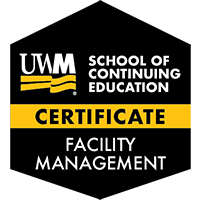
Master of Science degree in Civil Engineering
You can get the skills you need to design the next generation of infrastructure with a Master's in Science in Civil Engineering. This 100% online degree program will teach you how to design infrastructure using data-driven strategies to achieve optimal safety, durability, and sustainability. The courses include soil stabilization as well foundations, pavement design, structural dynamics, and structural mechanics.
Students must have a bachelor's degree or equivalent in Civil Engineering to be eligible for this program. They must also have attained at least 50% on their undergraduate degrees. The admissions committee also looks at the student's performance in an entrance examination. Graduate assistantships require that students apply for graduate assistantships. These are paid student jobs that work a set number of hours per week. Graduate assistantships may include tuition waivers as well as a monthly living wage.
To enroll in a master's degree program in civil engineering, you must have a bachelor's degree in civil engineering and have strong mathematics and science backgrounds. Conditional acceptance may be granted to applicants who don't have the required undergraduate education. In these cases, you can complete a bridge program, which consists of additional courses above and beyond the regular degree requirements.

Athletic teams
Milwaukee School of Engineering has expanded its baseball and softball athletics offerings. The new stadium will be built on the MSOE campus in downtown Milwaukee, close to East State and North Milwaukee streets. The stadium will also feature batting cages, dugouts, fencing, and other amenities. Construction is expected complete in time for the 2023 Spring Softball Season.
MSOE is an NCAA Division III college, and its athletic teams compete against other collegiate teams in the Northern Athletics Collegiate Conference. MSOE offers intramural and club sport for students, in addition to its varsity sports teams. More than 30 clubs, teams, and activities are available on campus.
The Milwaukee School of Engineering is an independent, non-profit university that offers bachelor's in engineering, nursing, and business. The school's faculty is committed to providing a nurturing environment for students. Students can expect personalized service, instruction, and academic excellence.
Curriculum
The curriculum for MSOE civil engineering degree is designed to prepare students to be professionals in the field. These professionals are responsible constructing the infrastructure necessary for modern society. Engineering principles and practices, mathematics and business are all areas that students will learn. These skills will enable them to design and estimate construction projects and help with solid waste resource recovery.

There are many specializations available in the MSOE civil engineering program, which range from structural engineering to environmental and water resource engineering. Students have the option to take evening classes and follow a flexible schedule. Students may also opt to minor in a related subject.
FAQ
What are the four major functions of Management?
Management is responsible for planning, organizing, directing, and controlling people and resources. It includes the development of policies and procedures as well as setting goals.
Management assists an organization in achieving its goals by providing direction, coordination and control, leadership, motivation, supervision and training, as well as evaluation.
These are the four major functions of management:
Planning - Planning involves determining what needs to be done.
Organizing: Organizing refers to deciding how things should work.
Directing - This refers to getting people follow instructions.
Controlling – Controlling is the process of ensuring that tasks are completed according to plan.
What are the main management skills?
Management skills are essential for any business owner, whether they're running a small local store or an international corporation. They include the ability to manage people, finances, resources, time, and space, as well as other factors.
These skills are necessary for setting goals and objectives as well as planning strategies, leading groups, motivating employees and solving problems.
As you can see there is no end to the number of managerial tasks.
What are the five management methods?
Planning, execution, monitoring and review are the five stages of any business.
Planning means setting goals for the long-term. Planning involves defining your goals and how to get there.
Execution takes place when you actually implement the plans. It is important to ensure that everyone follows the plans.
Monitoring allows you to monitor your progress towards achieving your goals. Regular reviews of performance against budgets and targets should be part of this process.
Every year, there are reviews. These reviews allow you to evaluate whether the year was successful. If not, then it may be possible to make adjustments in order to improve performance next time.
After the annual review is complete, evaluations are conducted. It helps to determine what worked and what didn’t. It also provides feedback on how well people performed.
Why is it important for companies to use project management techniques?
Project management techniques are used in order to ensure projects run smoothly, and that deadlines are met.
This is because most businesses rely heavily on project work to produce goods and services.
Companies need to manage these projects efficiently and effectively.
Without effective project management, companies may lose money, time, and reputation.
How do you effectively manage employees?
The key to effective management of employees is ensuring their happiness and productivity.
It is important to set clear expectations about their behavior and keep track of their performance.
Managers need to establish clear goals for their team and for themselves.
They need to communicate clearly and openly with staff members. They must communicate clearly with staff members.
They will also need to keep records about their team's activities. These include:
-
What did you accomplish?
-
How much work was done?
-
Who did it and why?
-
When it was done?
-
Why was this done?
This information is useful for monitoring performance and evaluating the results.
What is Six Sigma?
It's a method for quality improvement that focuses on customer service as well as continuous learning. The goal is to eliminate defects by using statistical techniques.
Motorola developed Six Sigma in 1986 to help improve its manufacturing processes.
The idea spread quickly throughout the industry, and today, many organizations are using six sigma methods to improve product design, production, delivery, and customer service.
Statistics
- UpCounsel accepts only the top 5 percent of lawyers on its site. (upcounsel.com)
- The profession is expected to grow 7% by 2028, a bit faster than the national average. (wgu.edu)
- Hire the top business lawyers and save up to 60% on legal fees (upcounsel.com)
- 100% of the courses are offered online, and no campus visits are required — a big time-saver for you. (online.uc.edu)
- The average salary for financial advisors in 2021 is around $60,000 per year, with the top 10% of the profession making more than $111,000 per year. (wgu.edu)
External Links
How To
How can you implement a Quality Management Plan?
The Quality Management Plan (QMP) was established in ISO 9001. It is a systematic way to improve processes, products and services. It helps to improve customer satisfaction and product/service quality by continuously measuring, analyzing, controlling and improving.
QMP is a method that ensures good business performance. QMP's goal is to improve service delivery and production. A QMP should include all three aspects - Processes, Products, and Services. If the QMP focuses on one aspect, it is called "Process." QMP. When the QMP focuses on a Product/Service, it is known as a "Product" QMP. And when the QMP concentrates on Customer Relationships, it is called "Customer" QMP.
Scope is the most important element in implementing a QMP. Strategy is the second. These elements can be defined as follows.
Scope is what the QMP covers and how long it will last. For example, if you want to implement a QMP that lasts six months, then this scope will outline the activities done during the first six.
Strategy: This describes the steps taken to achieve the goals set out in the scope.
A typical QMP consists of 5 phases: Planning, Design, Development, Implementation, and Maintenance. Each phase is explained below:
Planning: In this stage, the objectives of the QMP are identified and prioritized. All stakeholders involved in the project are consulted to understand their requirements and expectations. Once the objectives and priorities have been identified, it is time to plan the strategy to achieve them.
Design: This stage is where the design team creates the vision, mission and strategies necessary for successful implementation of QMP. These strategies are put into action by developing detailed plans and procedures.
Development: Here, the development team works towards building the necessary capabilities and resources to support the implementation of the QMP successfully.
Implementation: This is the actual implementation and use of the QMP's planned strategies.
Maintenance: The maintenance of the QMP is an ongoing task.
In addition, several additional items must be included in the QMP:
Stakeholder involvement is important for the QMP's success. They should actively be involved during the planning and development, implementation, maintenance, and design stages of QMP.
Initiation of a Project: A clear understanding and application of the problem statement is crucial for initiating a project. The initiator must know the reason they are doing something and the expected outcome.
Time frame: The QMP's timeframe is critical. A simple version is fine if you only plan to use the QMP for a brief period. However, if you have a long-term commitment, you may require more elaborate versions.
Cost Estimation: Cost estimation is another vital component of the QMP. Without knowing how much you will spend, planning is impossible. The QMP should be cost-estimated before it can begin.
QMPs are not only a document, but also a living document. This is the most important aspect of QMPs. It is constantly changing as the company changes. It should therefore be reviewed frequently to ensure that the organization's needs are met.